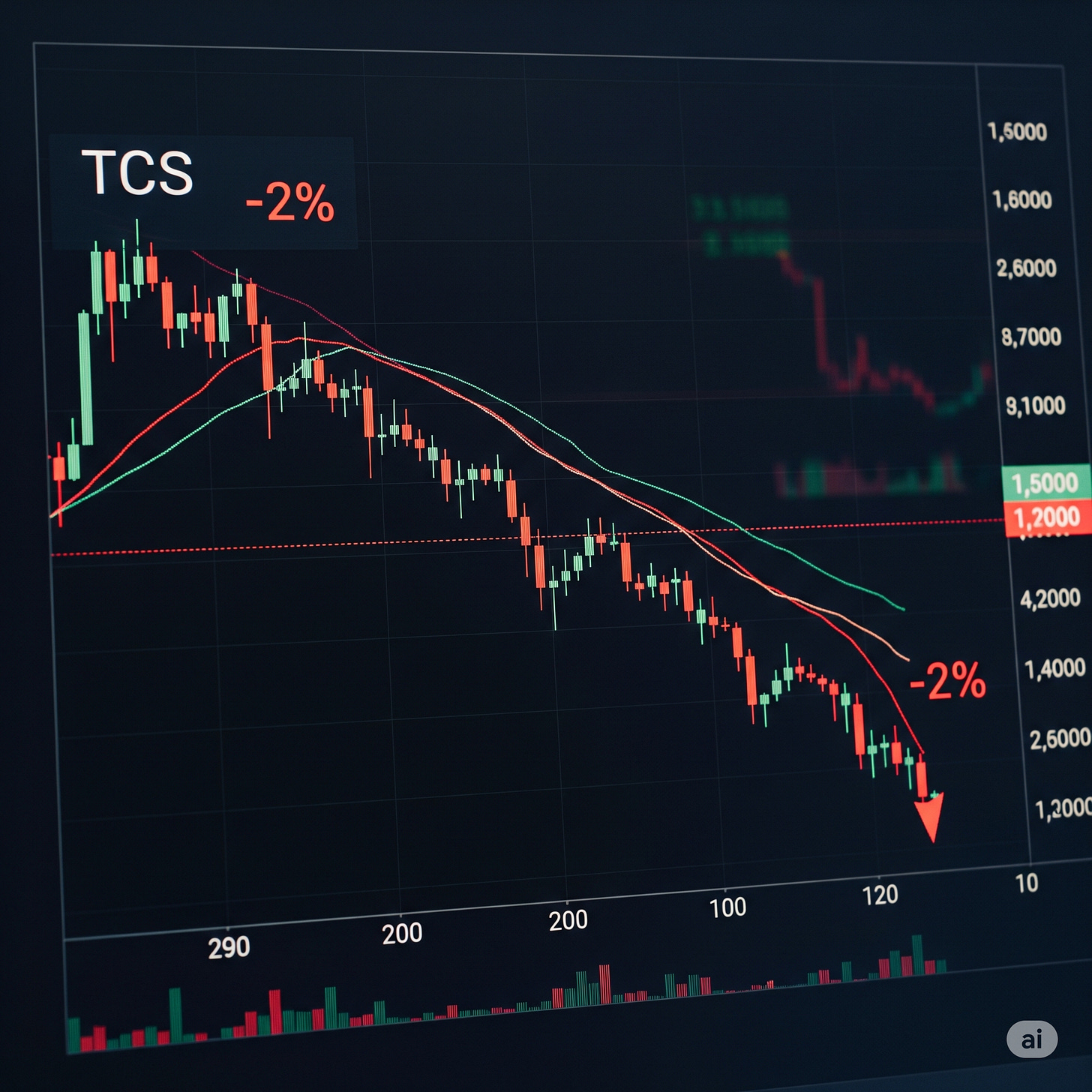Why is TCS down 2% today?
let's find the truth
Happy Monday!
Let’s kick off this week with India’s markets under a bit of pressure. Grab your coffee and let’s dive in.
📌 Market snapshot
On Monday, July 28, 2025, Indian equities treaded cautiously. As of 10:03 AM IST, Nifty 50 slipped 0.16% to 24,798.9, while the Sensex slid 0.2% to 81,325.4.
Small‑caps and mid‑caps weren’t spared either, dropping around 0.3% and 0.2% respectively.
Amid broader investor caution, financials and private bank indices dipped 0.2% and 1% respectively, largely due to a sharp fall in Kotak Mahindra Bank shares after disappointing numbers.
📌 But why did TCS suffer?
On Sunday, July 27, 2025, TCS confirmed plans to cut around 12,000 jobs, approximately 2% of its global workforce (almost 613,000 employees).
This move primarily affects middle- and senior-management roles, as TCS pivots to become more tech- and AI-aligned.
And, so the market got angry…
Investors responded swiftly.
By mid-morning on July 28, TCS stock had dropped 1.7–2%, hitting intraday levels near ₹3,081 on the BSE and NSE.
It became one of the biggest laggards in the Nifty IT index, which itself declined by over 1.6%.
📌 But why?
Unlike past corporate layoffs that often indicate improved efficiency, this cut is being interpreted as a sign of structural change and strategic pivot, not just trimming fat.
Analysts see it as TCS realigning roles amid AI disruption, client delays, and shrinking demand in developed markets like the U.S.
📌 Let’s break down this market behavior
The strategic narrative
TCS says the layoffs are not solely AI-driven; rather, they stem from skill mismatches and deployment challenges in the current macro environment.
The firm is investing in retraining and redeployment, aiming to build capabilities in AI, cloud, cybersecurity, and next-gen technologies.
Project Fluidity, the internal policy shift, reinforces this transition: employees must now maintain at least 225 billable days per year, with a bench limit capped at 35 days, raising performance accountability.
But why the sentimental moves and skepticism?
Despite the stated intent, the scale and timing of the layoffs have raised red flags.
Some investors worry that TCS is facing weak client demand, especially in North America, and that growth visibility remains muted.
Revenue for Q1 FY26 inched up just 1.3% YoY (₹63,437 crore), and net profit rose 5.9%, numbers that underwhelmed expectations for a recovery bounce back.
Benchmarking global performance, TCS shares are down 21% in 2025, including a nearly 14% hit to the Nifty IT index, suggesting long-term underperformance despite cost-cutting measures.
So, that’s it for today. If you enjoyed this edition, subscribe to hear from us every day!
See ya 👋


